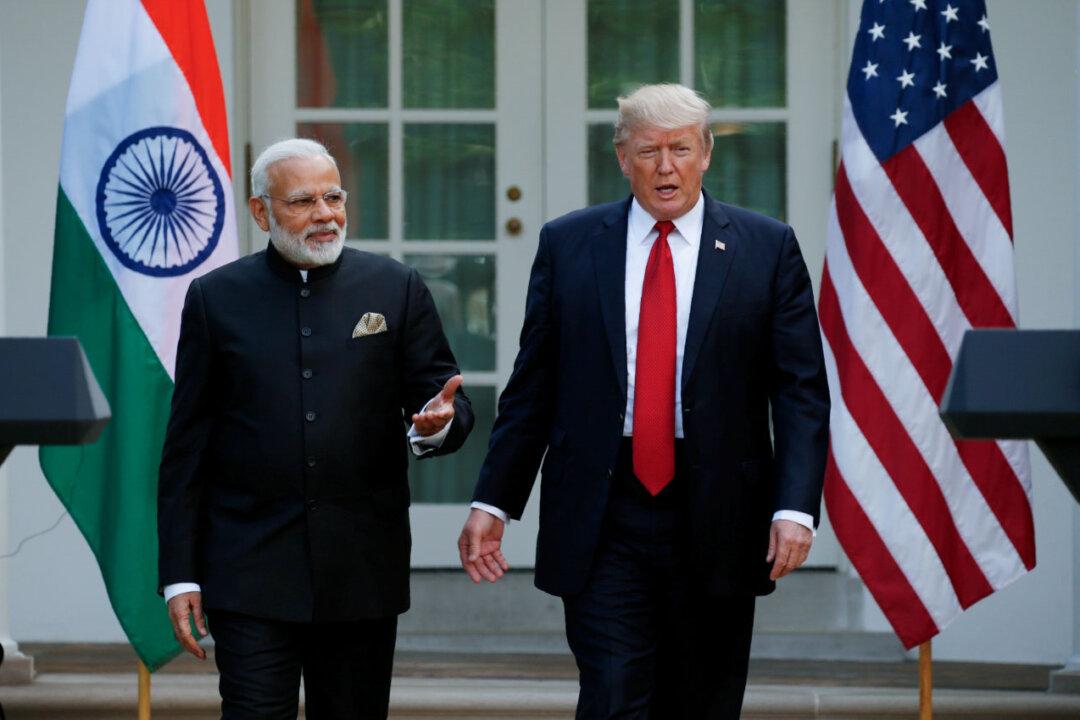NEW DELHI—Indian Prime Minister Narendra Modi is set to meet with U.S. President Donald Trump in Washington on Feb. 13. It will be the first meeting between the two leaders since Trump returned to the White House last month.
Amid a reignited U.S. trade war with Beijing, analysts said they expect that tariffs and China will be central to the meeting’s discussions.





